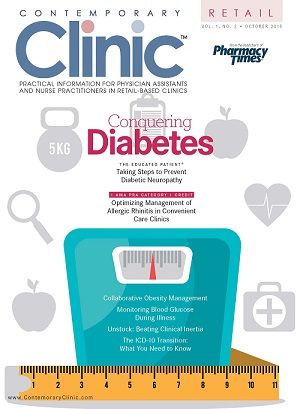Trends and Online Media: Patients Would Like to be Able to Contact Their Doctors Online
Effective communication between patient and physician is a vital component in the quality of care. A study published in theJournal of General Internal Medicinesurveyed 2252 patients in the retail setting on their interest in communicating with their doctor via e-mail, Facebook, and other social media.
The survey results show that 46% of patients in the study were interested in receiving their personal health information through e-mail, and 4% to 5% already do, and that 57% were interested in using physicians’ websites for health information.
Despite the large interest in online access to health information, very few patients take advantage of this convenience. Some hospitals have started using electronic health records (EHR) systems to support this patient interest, but only 7% of patients report actually accessing these systems for a variety of possible reasons. It is likely that most patients may not know online systems exist. Accessing the EHR portal may also be cumbersome, detracting from patient use, despite vast interest. Conversely, despite the clear interest from patients, physicians may not want to communicate with patients online. Physicians are aware of the possible HIPAA implications when communicating through personal e-mail or social media, and they may not want to take on the extra burden of constantly checking e-mail to ensure they are responding to their patients’ concerns in a timely manner.
The study results showed there is a very strong interest from patients to be able to contact their doctors online, despite that it is not being utilized as much as they would like. Whether doctors will follow this trend toward online communication is not clear, but according to patient interest in the study, future exchange of health information via email and internet could become a mainstay in clinical practice.

Knock Out Aches and Pains From Cold
October 30th 2019The symptoms associated with colds, most commonly congestion, coughing, sneezing, and sore throats, are the body's response when a virus exerts its effects on the immune system. Cold symptoms peak at about 1 to 2 days and last 7 to 10 days but can last up to 3 weeks.
COPD: Should a Clinician Treat or Refer?
October 27th 2019The Global Initiative for Chronic Obstructive Lung Disease (GOLD) defines the condition as follows: “COPD is a common, preventable, and treatable disease that is characterized by persistent respiratory symptoms and airflow limitation that is due to airway and/or alveolar abnormalities usually caused by significant exposure to noxious particles or gases.â€
Diabetic Ketoacidosis Is Preventable With Proper Treatment
October 24th 2019Cancer, diabetes, and heart disease account for a large portion of the $3.3 trillion annual US health care expenditures. In fact, 90% of these expenditures are due to chronic conditions. About 23 million people in the United States have diabetes, 7 million have undiagnosed diabetes, and 83 million have prediabetes.
What Are the Latest Influenza Vaccine Recommendations?
October 21st 2019Clinicians should recommend routine yearly influenza vaccinations for everyone 6 months or older who has no contraindications for the 2019-2020 influenza season starting at the end of October, according to the Advisory Committee on Immunization Practices.
What Is the Best Way to Treat Pharyngitis?
October 18th 2019There are many different causes of throat discomfort, but patients commonly associate a sore throat with an infection and may think that they need antibiotics. This unfortunately leads to unnecessary antibiotic prescribing when clinicians do not apply evidence-based practice.
